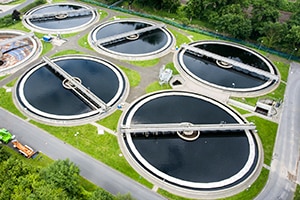What to know
Although rare, Naegleria fowleri has caused deaths that have been associated with disinfected or untreated public water systems, both in the United States and in several other countries. If Naegleria fowleri is suspected to have contaminated a public water system, people should take steps to keep water from going up their nose, which could cause a serious brain infection.

When Naegleria fowleri contaminates public water systems
Naegleria fowleri can cause primary amebic meningoencephalitis (PAM), a rare brain infection that is nearly always fatal. Most PAM infections happen after a person gets water in their nose from lakes, rivers, or other untreated freshwater bodies.
Naegleria fowleri has caused deaths associated with disinfected public water systems and an untreated, geothermal well-supplied water system in the United States. Disinfected public water supplies contaminated with Naegleria fowleri also have been linked to deaths in Australia and Pakistan.
If Naegleria fowleri is suspected to have contaminated a public water system, the water utility may raise disinfectant levels and flush the system. When this occurs, the water may have a strong chemical taste or smell. The water utility will work to make sure that tap or faucet water still meets drinking standards.
Prevention tips
A layer of scum or biofilm that usually coats pipes in water systems and homes could contain Naegleria fowleri. Some of the contaminated layer could come loose in a water system or household tap or faucet water when the utility raises disinfectant levels.
People served by a public water system that has been determined to contain Naegleria fowleri should take extra steps to keep tap or faucet water from going up their nose. When Naegleria fowleri travels from the nose and to the brain, it can cause PAM.
Recommendations for people using a water system contaminated with Naegleria fowleri include:
- DO NOT allow water to go up your nose or when bathing, showering, washing your face, or swimming in a small hard plastic or blow-up pool.
- DO NOT put your head under water when bathing or swimming in a small hard plastic or blow-up pool.
- DO NOT allow children to play unsupervised with hoses or sprinklers since they may accidentally squirt water up their nose. Avoid slip-n-slides or other activities where it is difficult to prevent water from going up the nose.
- DO run bath and shower taps and hoses for five minutes before use to flush out the pipes. This is most important the first time you use the tap or faucet after the water utility raises the disinfectant level.
- DO use only boiled, distilled, or sterile water if you are rinsing your sinuses or nasal passages.
- DO keep small hard plastic or blow-up pools clean by emptying, scrubbing, and allowing them to dry after each use.
- DO keep your swimming pool adequately disinfected. If you need to top off the water in your swimming pool with tap or faucet water, place the hose directly into the skimmer box and ensure that the filter is running. Don't top off by placing the hose in the body of the pool.
- The epidemiology and control of primary amoebic meningoencephalitis with particular reference to South Australia
- Primary Amebic Meningoencephalitis Caused by Naegleria fowleri, Karachi, Pakistan
- Identification of Naegleria fowleri in Domestic Water Sources by Nested PCR
- The First Association of a Primary Amebic Meningoencephalitis Death With Culturable Naegleria fowleri in Tap Water From a US Treated Public Drinking Water System
- Rapid detection of Naegleria fowleri in water distribution pipeline biofilms and drinking water sample
- Primary amebic meningoencephalitis deaths associated with sinus irrigation using contaminated tap water
